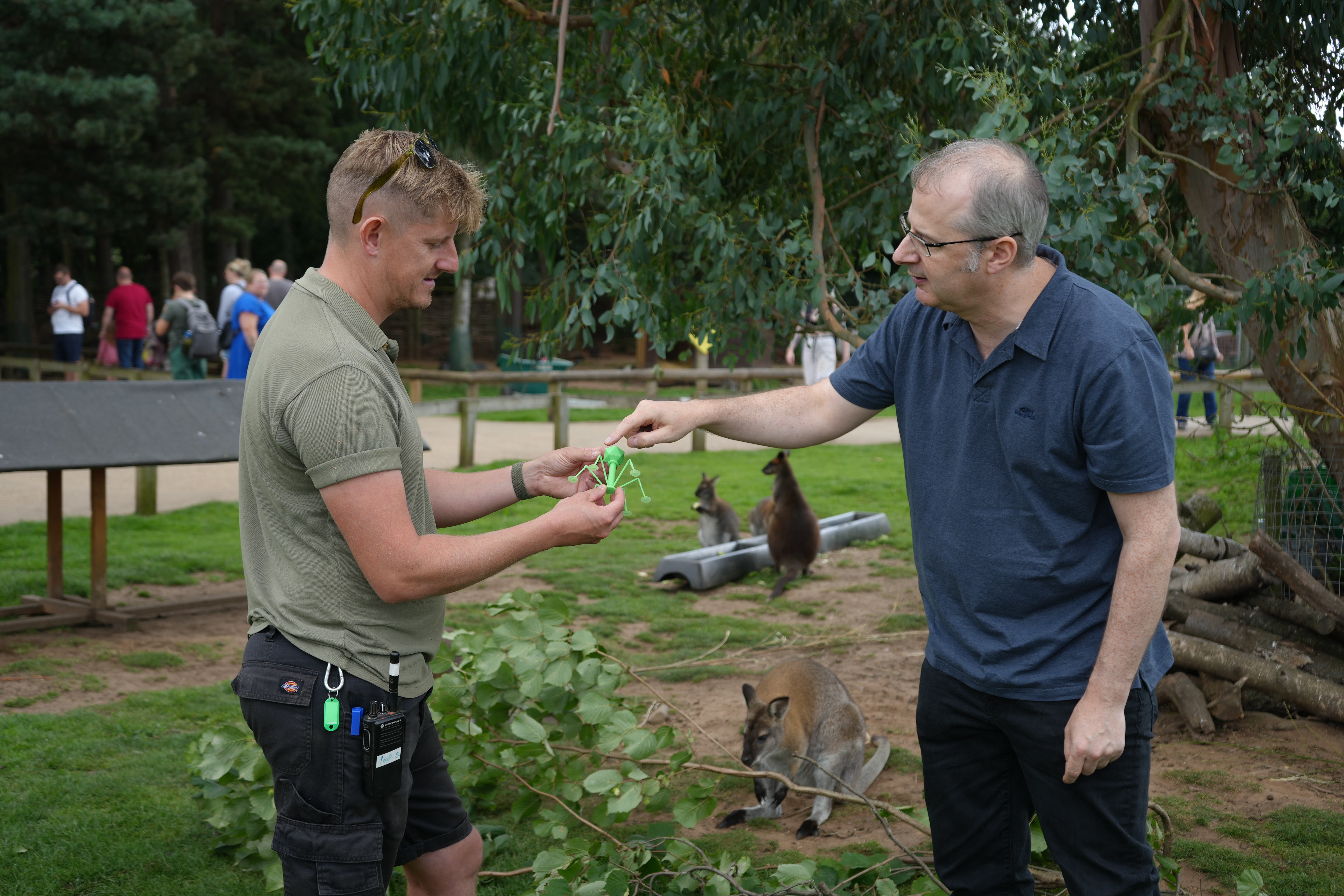‘Zoo poo’ could save NHS £1bn a year
Naturally occurring viruses found in the faecal matter of some animals could be included in dressings used to treat diabetic foot ulcers.

Viruses found in the poo of endangered animals could be used to treat diabetic foot ulcers and save the NHS £1 billion a year, researchers have suggested.
A team from the University of Sheffield said naturally occurring viruses in the poo – known as bacteriophage or phages – could be included in dressings applied to untreatable ulcers with further research.
There are thousands of different types of phages, which selectively target and kill bacteria, even in instances when antibiotics do not work. Phage therapy was first discovered in the early 20th century.
The research team, led by Professor Graham Stafford, used poo from various animals, including Guinea baboons, lemurs and Visayan pigs, which are housed at Yorkshire Wildlife Park (YWP).
Prof Stafford, who is chairman of molecular microbiology at the University of Sheffield, said: “Despite the smell, it turns out that the faecal matter of endangered species could hold the key to killing infectious bacteria that are otherwise resistant to antibiotics.”
He added that the team is “working hard” to develop the faecal matter “into viable treatments for patients whose next option is the loss of a toe, foot or leg”.
“Importantly, the treatment could also help reduce costs of about £1 billion per year to the NHS,” Prof Stafford said.
According to Diabetes UK, about 4.3 million people are living with a diabetes diagnosis.
NHS England estimates around 10% of patients will develop a foot ulcer at some point in their lives.
Prof Stafford said his team’s work “is part of a wider drive in UK bioscience to find new antimicrobials to combat the major global challenge of antimicrobial resistance (AMR)”.
AMR, or antibiotic resistance, led to the death of about 1.27 million people across the world in 2019, according to a report by The Lancet.
Last month, the Government announced a £210 million investment to fight the issue on a global scale.
During a visit to India, Health Secretary Steve Barclay described AMR as a “silent killer” that “poses a significant threat to people’s health around the world and here in the UK”.
A report by the World Health Organisation (WHO) in April said its surveillance of antibiotic resistance in the European region, which included data from 2021, showed “high percentages of resistance to last-line antibiotics” in a number of countries.
It’s a delight that endangered species are contributing to such a positive and powerful purpose. It provides an ever stronger reason to conserve endangered animals
Prof Stafford said: “We have been searching for new treatments for antibiotic resistance for a while and we are the first to look for such a virus in zoo poo.
“We look forward to the poo pick-up, which the wonderful team at the zoo place in a cool box in a fridge for us.
“It’s a delight that endangered species are contributing to such a positive and powerful purpose. It provides an ever stronger reason to conserve endangered animals.
“The biodiversity they harbour potentially includes new cures for a range of infectious diseases and we believe this is the tip of the iceberg in this area.”
The team said phage therapy has been used in the UK a “handful of times”, primarily to treat sepsis, although it is not yet licensed for medical use.
However, it is used in the likes of Georgia, Russia and Poland, and the method is also the subject of clinical trials approved by the Food and Drug Administration (FDA) in the USA.
Dr Dinesh Selvarajah, consultant physician at Sheffield Teaching Hospitals NHS Foundation Trust, added: “Unfortunately, I see many patients with diabetic foot disease in my clinic.
“Treating infections more effectively will have a significant impact on lowering the risk of amputations.”
Research is ongoing to discover phages from different sources.
Bookmark popover
Removed from bookmarks